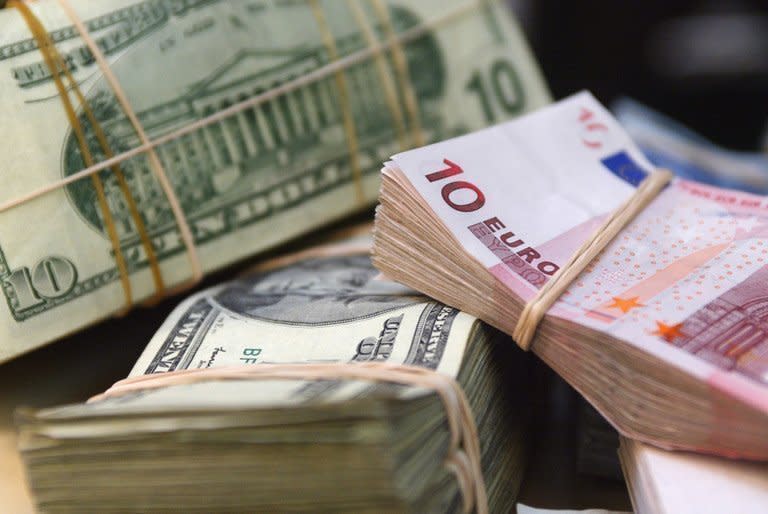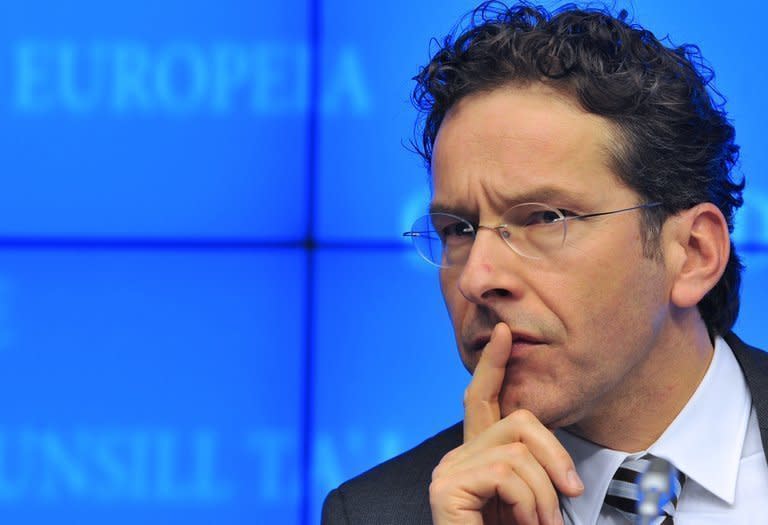Cyprus must tackle money laundering, banks for aid: Eurozone
The eurozone aims to agree a bailout accord for struggling Cyprus in March but serious concerns over its banks and money laundering have to be resolved first, the head of the Eurogroup finance ministers said Monday. Dutch Finance Minister Jeroen Dijsselbloem, chairing his first meeting of the 17-nation eurozone, refused meanwhile to be drawn on the euro's recent strength, which France believes needs a response so as to ensure it does not undercut exports and much-needed economic growth. Cyprus asked in June for a bailout worth some 17 billion euros, equal to its annual economic output, but progress has been slow given concerns over its banks and allegations of money laundering due to fears of a presence of Russian criminal elements in the country. News reports that the EU wanted bank depositors to share the burden of any bailout has sparked speculation of bank runs but Dijsselbloem said this "just proves that we need to work really fast on this … we need to come to decisions in March." Legislation clearing up the banks and addressing the money-laundering issue "has to be in place and … being implemented. We need it pretty quickly," he said. EU Economic Affairs Commissioner Olli Rehn, who also attended the meeting, insisted "there are no proposals along the lines" suggested in the news reports of depositors sharing in the bailout while a proper anti-money laundering regime "is a sine qua non for any deal." "We are working on a solution that will maintain financial and economic stability in Cyprus and thus in the broader eurozone," Rehn added. At a closing press conference, reporters repeatedly pressed Dijsselbloem on the issue of the euro and French suggestions there should be a fixed target for the single currency. Dijsselbloem said it was discussed but it would be best to raise the issue at the G20, which meets later this week in Moscow. "It was part of the discussion but the main conclusion was that it should be discussed, if anywhere, at the G20," he said, repeating several times: "I have made it a rule not to comment on exchange rates." French Finance Minister Pierre Moscovici, who had pressed for the issue to be addressed, expressed satisfaction that ministers had done so. "We all agreed that what counted was that (there be) a message for international forums ... and in effect, the G20 is no doubt a good place to discuss this issue," Moscovici said. German Finance Minister Wolfgang Schaeuble said separately that there was no problem with the euro, but there might be issues with other currencies -- an apparent reference to Japan which is forcing down the yen to make its exports more competitive. "We reassured each other that excahange rates should not be manipulated," Schaeuble said, adding: "We want to emphasise that in Moscow." Germany, Europe's paymaster, and the European Central Bank have been clearly uncomfortable at any suggestion of intervention on the euro, with the ECB's mandate to ensure price stability, not manage the forex markets. The finance ministers also elected Dijsselbloem head of the European Stability Mechanism, the eurozone's rescue back-stop which became operational last year under his eurogroup predecessor Luxembourg's Jean-Claude Juncker. Dijsselbloem said there had been a lengthy discussion about the role of the ESM in recapitalising weak eurozone banks so as to prevent any repeat of the debt crisis. The ESM will only be able to play this key role once a Single Supervisory Mechanism, agreed in December, is up and running so ministers were looking at how it should be prepared for this task, he said. The possible involvement of private entities in funding the ESM was also discussed, he added. In addition, ministers reviewed Greece's bailout programme after agreeing disbursement of urgently needed funds in December and welcomed progress Ireland had made with the ECB on aid and the restructuring of the Anglo Irish Bank, whose collapse ultimately pushed Ireland into seeking an international rescue. Officials said ministers thanked Juncker for his work since 2005 in overseeing a difficult and hard-won overhaul of the euro's shaky foundations, preparing later for a dinner in his honour. The 17 eurozone finance ministers will be joined by their 10 non-eurozone colleagues for more talks on Tuesday.




